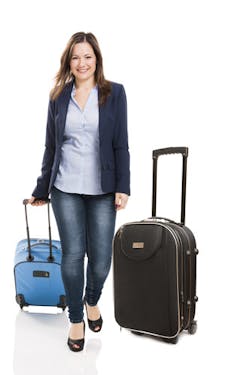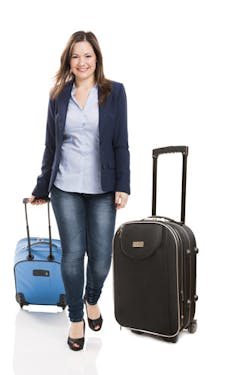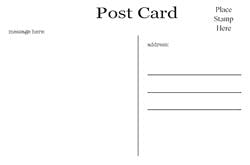A stranger in a hygiene community: Career relocation does pose a challenge, but it's a new home for your skills
Career relocation does pose a challenge, but it's a new home for your skills
BY Kyle Isaacs, RDHEP, BHS
Imagine that you arrive at work one day and find that your services are no longer needed; maybe you have worked in the dental practice for a few years, maybe much longer. In a different hypothetical scenario, your hours are suddenly cut "due to the economy." Or, suppose that you are attempting to find work after a hiatus due to illness, the need to care for a loved one, an injury, or the birth of a baby. What about looking for work after moving to a new city or state?
These are just a few of the possible scenarios that more and more dental hygienists are finding themselves in these days. Successfully landing a new clinical dental hygiene position can be daunting. It is probable that most dental hygienists will find themselves in one of these scenarios at one time or another during their careers.
Any of these life-changing events can be stressful in itself. Add to this the need to find a new job, and an already-anxious RDH is likely to experience even more apprehension. I have heard many dental hygienists complain about the state of our profession - not enough positions, too many hygienists graduate from dental hygiene schools annually. Some dental hygiene schools are even increasing the number of graduating hygienists. Throughout my 30-plus years of being a practicing RDH, my recent move to a new state was the first time the lack of positions has been shoved right in my face.
----------------------------------------------------
View related articles
- Flexible work schedule continues to appeal to hygienists
- The power of peers: Establishing professional networks
- Get noticed and get hired by the dental office of your dreams!
----------------------------------------------------
The stress of moving to a place where we knew no one was compounded by the fact that my husband and I did not have jobs. The situation was made yet further challenging by our move to a state in which I did not have a license to practice. For many of us, losing a position, moving, or coming back after a leave could be frustrating to the point of making us want to give up. I know this, for I wanted to just give up many times during my pursuit. Instead of giving up, I used the challenges to find new strengths.
For those who have time to plan - that is, if you know ahead of time that you will be moving or taking some time off - this can give you the ability to learn new skills or hone old ones. Age does not matter, as I was able to move and succeed, even at 53.
Having worked in private dental offices my whole life, it was easy to become complacent, feeling comfortable with providing care for middle- to high-income patients. It was easy to become bored and burnt out. As I was preparing for my move, I wondered, "Oh my goodness: What will I do? How will I find a job, especially at my age?" I had a lot of fear and self-doubt. But finding a new position doesn't have to fill us with fear and self-doubt because it can offer us the type of challenges that push us from complacency to something new.
So many of us tend to stay on the same path, so there is discomfort when we are put in a position that requires us to do something different. I am not talking about discomfort as in physical pain but the discomfort of finding oneself in a situation that is unfamiliar and that requires a little work. Stepping up to the challenge and experiencing the discomfort can create new opportunities for us to increase our self-confidence and create something we never may have dreamed of or imagined we could do. It happened for me.
Not everyone has the luxury to plan ahead, so my recommendations and suggestions for those of you who are looking for work include tasks with quick turnarounds, as well as much longer-term options.
Licensure
Acquiring state licensure is the first thing that needs to be done by those who are moving to a new state. Each state has specific requirements that can be accessed on the website for that state's dental board. Some states might require that you take the clinical board; many will allow you to apply for licensure without taking an exam. Various states may require any of the following: a minimum number of hours worked within a specific timeframe, an application, a large sum of money (of course), a jurisprudence exam, and/or fingerprinting. It can take at least four to six weeks, and sometimes longer, to become licensed after the board has received your application. It took three months for me.
Postcards for new friends
Here are some other ways that I networked. I talked to hygienists I knew and asked if they knew anyone in the area where I was moving. This gave me several connections. Then, I emailed those connections, an effort that led to some good professional friendships. At the suggestion of my friend, Amy Petrillo, I also made postcards with my photo that highlighted my strengths and my availability. I had about 250 double-sided postcards made for a cost of about $40. Although I had to pay to make the postcards, it would have been even more difficult to make connections without investing something.
I also invested time; I spent countless hours on the computer, searching for dental offices in my area. My postcards were sent to more than 75 dental offices, and I hand delivered my updated resume to at least 50.
Walking into a dental practice, smiling, introducing yourself, and handing over your resume in an area that you know is saturated with dental hygienists can be depressing. But my postcards brought me several calls to temp, one of which resulted in a job offer. Delivering my resume in person resulted in a handful of temp days and one day providing free care to low-income children.
Networking
Networking is a great way to get your name out there and meet people in the field or others who might know someone in the field. One way to network is to get involved with the local dental hygiene component. You will meet people who are already working in the area who might know which offices are looking for candidates to fill permanent positions, temping opportunities, etc. Do your research, look at the state's components, and email board members before a move or if you need to meet people in your current area to get your name out there.
By doing this, I was able to get some temp days, and I also met some awesome people. One of the board members I met gave me valuable information about a local dental temp agency. Even with all of the searching I had done on the Internet, this particular temp placement agency was mostly invisible to outsiders.
Other networking ideas include contacting the directors of local dental hygiene programs to see if there are any clinical teaching positions or volunteer opportunities available. I did this, and although I did not get to teach in a clinic, the director recommended me to a dentist who had asked her for recommendations to fill a long-term temp position. In order to get noticed, you have to be willing to go out and meet people in person. Yes, I also scoured Craigslist, but in today's job climate, you cannot wait for a position to come to you.
If you are looking for work in an area where you have lived for a while, networking should be a little easier. When I was getting ready to move a year ago and trying to find my replacement in the practice I had worked in for more than 25 years, our office wanted to be selective; that is, the office wanted to bring on a dental hygienist whose personality was similar to mine and who had a similar work ethic. Most practices will find new hires through word-of-mouth, so if you are new to an area, getting recommendations from your peers will be limited, if you get any at all. This is why networking is so important.
Volunteering
Volunteering is another way to meet people, to provide a much-needed service, and to feel good. Do some research and find out what dental and nondental opportunities are available in your area. My realtor invited me to join a service group where I met numerous women who wanted to help me, one of whom had connections with people in the county dental program. I volunteered on the dental van one day and at a Mission of Mercy (MOM) event on another. I also did free screenings with the county program on some other days. Volunteering can help you to expand your skills and make yourself more marketable.
Finally, if your state or the state you are moving to allows it, you can obtain an alternative or expanded practice permit. In Oregon, we can obtain expanded practice permits to work outside of traditional settings. This can open up so many more opportunities.
After I obtained my permit, I bought some equipment, started my own business, and began to see patients who were otherwise unable to access care. My permit also led to a part-time position with the county where I live. Through this position, I am able to visit schools, where I administer screenings, sealants, and fluoride varnish.
One of the board members I met gave me valuable information about a local dental temp agency; even with all my searching on the Internet, this particular temp placement agency was mostly invisible to an outsider.
I will not downplay how scary it was for me to move without having a job, not knowing if my husband and I would be able to pay our bills. It definitely took a leap of faith and a lot of assertiveness to make things happen. Instead of getting frustrated about needing to find work, use the opportunity to realize your hidden strengths and new beginnings. Who knows? Even you might find yourself doing something you never thought you would do; writing an article for RDH magazine is something I have wanted to do for a long time!RDH
Kyle Isaacs, RDHEP, BHS, lives near Corvallis, Oregon, where she works four days a week in a dental office. She also owns a company, Miles 2 Smiles LLC, and provides dental hygiene care in churches, private homes, and schools. Eventually, she hopes to provide care in nursing homes as well. She is a member of the American Dental Hygiene Association and serves on the board of her local component. She loves to volunteer and comes from a family with many dental professionals. She has been a dental hygienist for 32 years and loves educating patients and helping them to get and stay healthy - both in the mouth and systemically.


